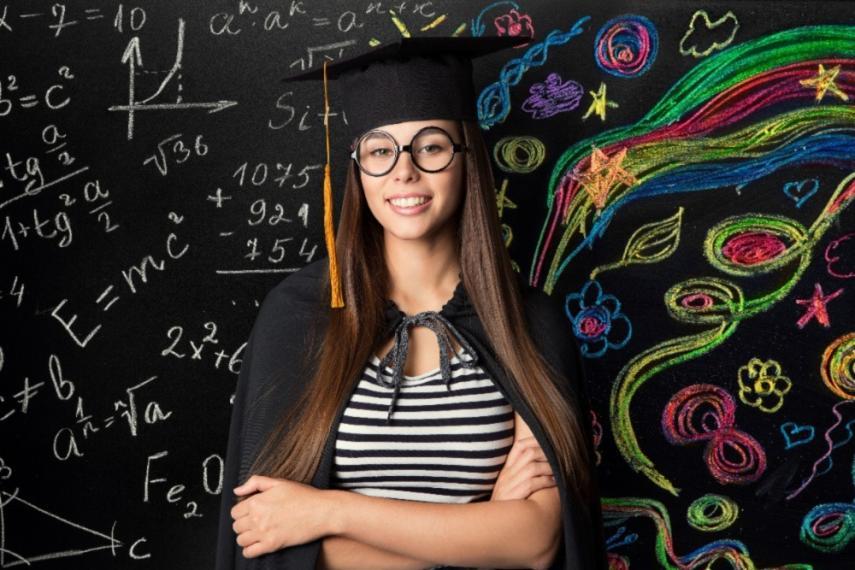$3.3 Million in NSERC Funding Awarded to Two Projects with U of G Co-Collaboration

Two College of Engineering and Physical Sciences (CEPS) professors are innovating how we teach and train students, with the goal of readying them for careers in industry, government, non-governmental organizations and academia. They will collaborate with research teams from across the country on two projects that have each received Natural Sciences and Engineering Research Council (NSERC) Collaborative Research and Training Experience (CREATE) program funding valued at $1.65 million over six years.
“Our College prides itself on being at the forefront of educational innovation,” says Dr. Leonid Brown, CEPS associate dean, research and graduate studies. “We are thrilled to collaborate on two CREATE programs offering the participating students the opportunities to become leaders in the fields of artificial intelligence and machine learning, and water and sanitation engineering.”
The NSERC CREATE enables training and mentorship of graduate students and postdoctoral fellows through innovative training programs that improve their technical and professional skills, with a focus on highly collaborative, integrative experiences that prepare trainees for career-readiness.
Led by the University of Victoria, the proposal NSERC CREATE in water and sanitation for low-resources contexts, aims to train the next generation of engineers and scientists to tackle the water and sanitation challenges of the future, with a focus on sanitary water access for impoverished and marginalized communities.
Dr. Ed McBean, co-applicant on the project, is a professor in the School of Engineering (SOE) and former University of Guelph (U of G) Research Leadership Chair. McBean brings expertise in the areas of water supply security, municipal infrastructure integrity, risk assessment and management, and statistical analyses of environmental data. Also joining the research team from U of G as a collaborator is Dr. Heather Murphy from the Ontario Veterinary College.
Their CREATE program will be the first of its kind in Canada to focus on domestic and global water and sanitation challenges in low-resource contexts. Students will be offered enhanced training opportunities including professional development, field experiences and interdisciplinary collaborations. Graduates will be equipped with the skills to develop creative and resourceful solutions to water engineering challenges, based in science and engineering principles, in addition to communication skills to deliver their recommendations to employers.
“This funding will allow more students to be supported and learn about a major global issue, namely health, water and wastewater issues,” says McBean. “Of particular importance is that the training opportunities this funding will support will go far beyond what can be offered at any individual university, and hence, of great value.”
Dr. Graham Taylor, co-applicant on the second CREATE project, is a professor and a Canada Research Chair in Machine Learning in SOE. Led by the University of Ottawa, Interdisciplinary Math and Artificial Intelligence Program (INTER-MATH-AI) focuses on leveraging mathematics and artificial Intelligence (AI) to create original solutions to industry challenges with a moral lens. Taylor is an internationally recognized expert in deep learning —a type of machine learning inspired by the human brain— and a leader in ethical AI.
INTER-MATH-AI seeks to usher in a new era of AI that is cognizant of societal challenges. The research team notes that the field of AI currently lacks diversity, and they aim to train diverse AI professionals with the necessary skills in math and machine learning. The program will involve nurturing creativity and collaboration, while instilling a keen awareness the social implications and ethical development of AI.
“We have developed several new AI-focused training programs, supported through our Centre for Advancing Responsible and Ethical AI (CARE-AI), here at the University of Guelph,” says Taylor. “Ethics is a major component of our programs and the key in learning about and developing AI/ML systems from inception to deployment. I'm delighted to be part of the U Ottawa-led CREATE on Interdisciplinary Math and Artificial Intelligence (INTER-MATH-AI).”
Through CARE-AI and its experts on the CREATE proposal, which includes both Taylor and Dr. Mihai Nica from the Department of Mathematics and Statics, the University will bring leadership from the perspective of ethical AI application. Taylor will host a new CARE-AI workshop and talks for trainees, with support of the funding, to ensure that the students learn to build AI systems that are also compatible with human values.
The 2022 NSERC CREATE competition results can be found on their website.

Ed McBean is a Professor and former University of Guelph Research Leadership Chair in the School of Engineering.

Dr. Graham Taylor is a Professor, Canada CIFAR AI Chair and Canada Research Chair in Machine Learning in the School of Engineering.